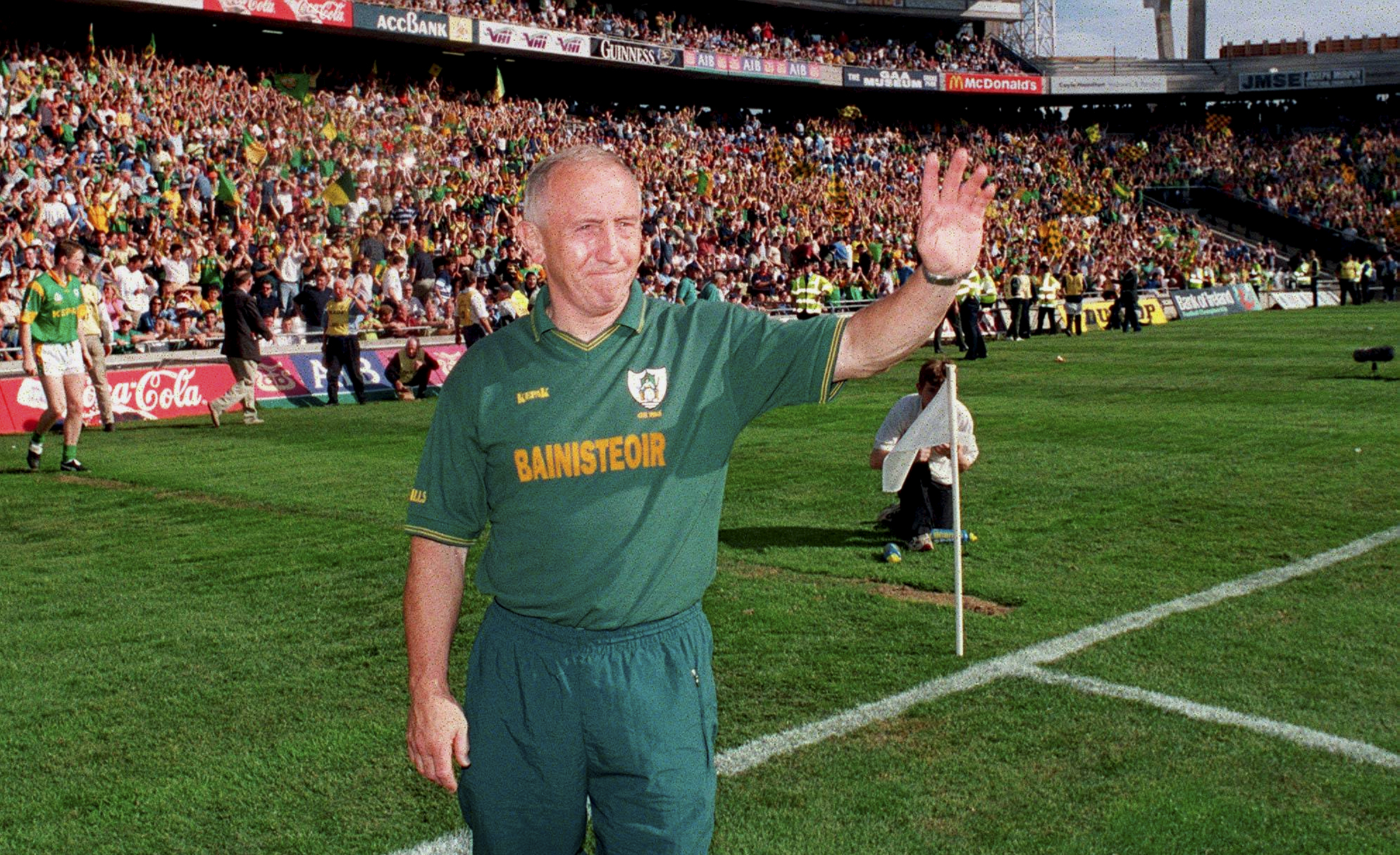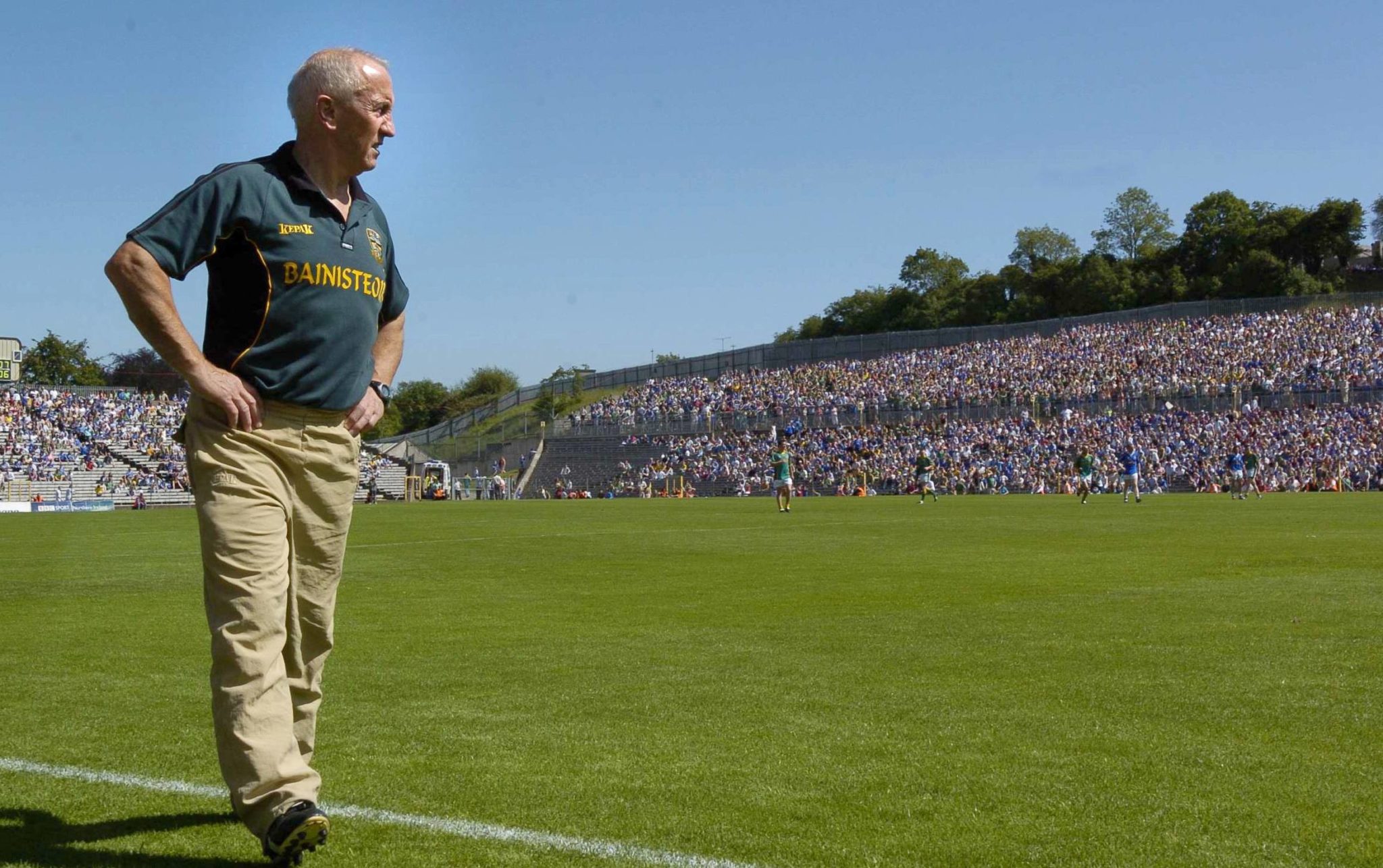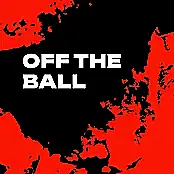There has been plenty of positive reaction to TG4's documentary on former Meath football manager Sean Boylan, as well as some criticism.
Joe Molloy, Cliodhna O'Connor and Brendan O'Brien discussed the reaction to the documentary on Off The Ball's Sunday Paper Review - including Tommy Conlon's piece in the Sunday Independent. Conlon posits that Boylan had two sides to him, in the polite, decent man - but one able to put out 'brutish' teams onto the field of play.
The perception that the teams were unnecessarily rough, however, O'Brien is unsure if that was unique at the time.
"It's not that they were dirty it's just that they were very good. You knew that they played on the edge but I don't have any great memories of them being [too dirty]," O'Brien said.
"They weren't alone in that it was a very different culture in the GAA at the time."

"Crikey, we've all looked back on those TG4 All- Ireland finals. Some of the stuff that went on in the '70s, when Meath were nowhere to be seen, was appalling," O'Brien continued.
Boylan managed the Meath senior football team for 23 years and was known to be wonderfully kind off the field.
As a manager, however, Boylan was fiercely competitive and he instilled this characteristic into the players under him.
While Alan Bradley's documentary was lauded by many within the GAA community, it has been criticised by Conlon, who questioned whether the film had glossed over the "brutish" nature to the Meath sides under Boylan's command.
It failed to tell the story of both sides of Boylan's makeup, according to Conlon, who wrote about the documentary in the Independent.
"Meath in those years never fully seemed to fully trust themselves as footballers," Conlon wrote.
Boylan's Meath

He argued that Boylan's sides were the last representative of an era of the GAA defined by "attrition and aggression." Their decline ushered in more pleasing styles of football.
There is a perception that those Meath sides did not play with the same level of flair as some of the teams before their time, such as the Kerry side of the 1970s.
There may be validity to this argument but the rough and tumble style that the Royal county adopted was borne of necessity, according to O' Brien.
"Meath were in the doldrums. Who were Meath [at the time]? Meath were nowhere."
Conlon also felt that the documentary did not focus on Boylan's life outside the field of play. In this area of life, Boylan has been a gracious man, something that Conlon admitted in his piece.
Boylan was a herbalist who regularly helped those in his community and was never one to turn someone he could help away.
"The amount of good deeds he quietly performed is legion," Conlon wrote. For this reason, Conlon was critical of the documentary for not separating competitor and man. This kind of double persona is common amongst athletes, and sporting figures, and O'Connor alluded to this.
"Maybe for him, the arena of football was a primal thing were anything goes and off the pitch [he said] we will look after you, we will be lovely and we will connect as human beings," she said.
It is always difficult to assess historical teams across all sports and we often look back through rose-tinted glasses at past events.
Whether Meath at the time were a dirty side or not, Boylan had a lasting influence on their footballing culture and brought the Royal county lasting success. That much cannot be denied.
Download the brand new GoLoud App in the Play Store & App Store right now! We've got you covered!
Subscribe to OffTheBall's YouTube channel for more videos, like us on Facebook or follow us on Twitter for the latest sporting news and content.








